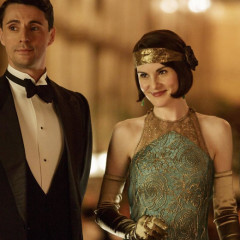Tina and Karen seem like such relevant characters at this particular societal moment, literally representing the two sides of the "feminist" argument.
.jpg)
Tina, anti-patriarchy, seems to find motherhood oppressive, while Karen is representative of the other side of the feminist spectrum - the right to embrace motherhood in a more traditional sense. Is the film trying to make a statement one way or the other?
They are both sides, for sure. And isn’t it interesting that I play Tina who’s not sure about motherhood but in real life I have a daughter, while Christina plays maternal Karen but in real life she is childless by choice? Our goal was that both women are valued and heard; that they love each other despite their differences; and that even though they judge each other’s choices, they don’t fuck with each other’s truths.


.jpg)
.jpg)



.jpg)
.jpg)
.jpg)

.jpg)
.jpg)

.jpg)